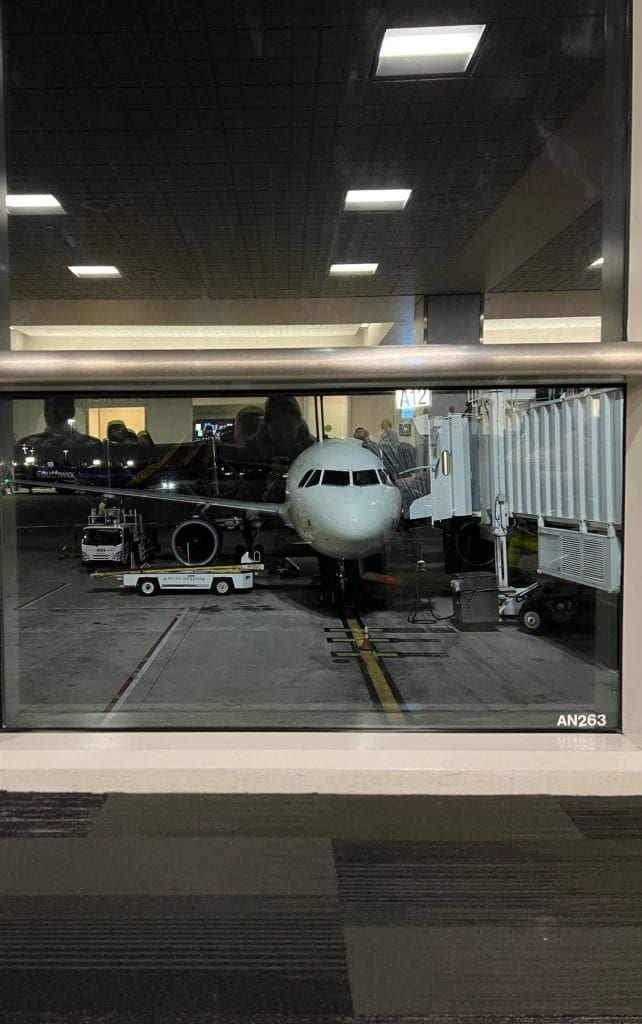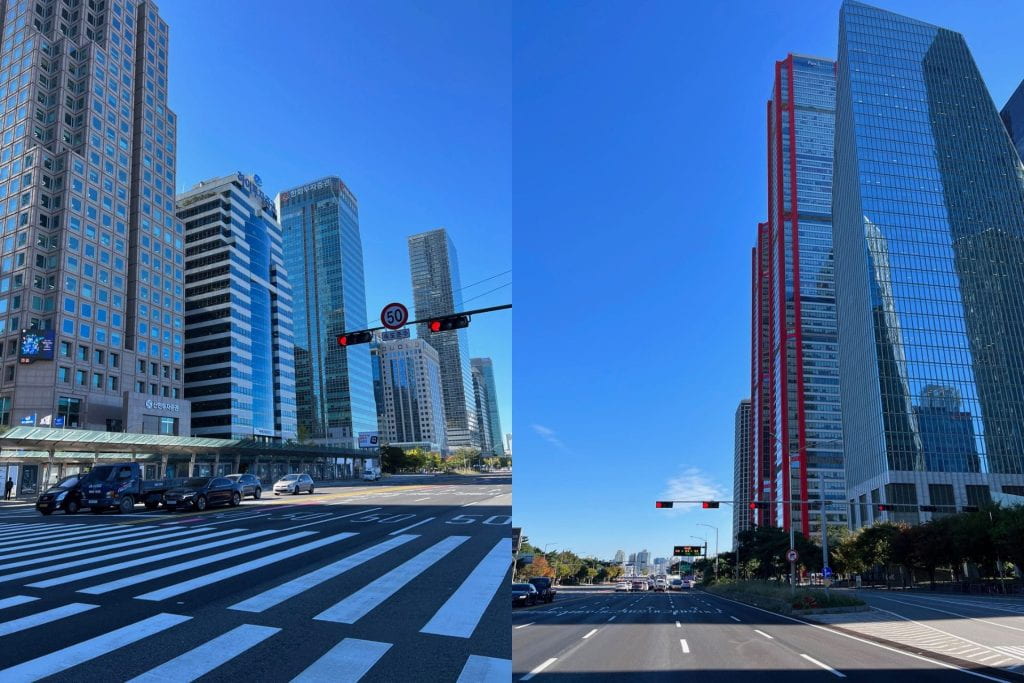>24 Hours of Traveling to South Korea
At 3:30 AM on Wednesday, 12th of October, I headed to IAH to fly to MSP, Minnesota. Unfortunately, there is no direct flight to Seoul from Houston. During the 5-hour layover in MSP, suddenly, the flight schedule changed in an interesting way. While the departure time was the same, the arrival time got delayed by 2 hours. The airplane had to take an alternative route, a detour, to avoid Russian airspace! After the long, 15 hours of flight (the longest flight I have ever taken!), I finally arrived at Incheon International Airport.


Purpose of the Travel
The main purpose of this travel was to initiate data collection for my Ph.D. dissertation. The benefit of collecting my own data is that I can collect specific data that can be crucial to answering my research question. However, as a Ph.D. student in Economics, it is often very hard to initiate a project that requires a dataset that is not publicly available. For this reason, my research idea became “feasible” thanks to the Expanding Horizons Fellowship, which was a generous gift from Rice alumnus Walter Loewenstern. The fellowship really “expanded” the research scope a graduate student could work on. Before I talk in more detail about what I have achieved on my trip, I would like to briefly explain my motivation and outline the research that I am conducting.
“Changes in Intra-household Inequality When Formal Childcare is Not Available”
My study focuses on how intra-household inequality regarding the share of paid and unpaid labor changes if formal childcare is unavailable for dual-earner households in South Korea. In this country, childcare centers, kindergartens, and schools were closed nationally starting in March 2020 to stop the spread of COVID-19.
To see the impact of the care facilities closure on intra-household inequality, I run a counterfactual experiment where I limit households’ access to formal childcare. To run this experiment, I construct a collective intra-household bargaining model, assuming that the wife and husband bargain on the time allocation of paid work and unpaid labor, such as housework and childcare. I assume that the wife and husband have distinct preferences over household consumption, time allocation, and different childcare arrangements. In this setting, two elements shape household decisions: 1. Each household member’s preferences on the time-use and childcare arrangements, and 2. The bargaining power between the two members.
How to distinguish the two channels? I collect a novel dataset that combines “stated-preference data” from individual household members with “revealed-preference data” on the household’s actual choices. Stated preference data is collected through an online choice experiment, where individuals are asked to choose their most preferable alternatives under hypothetical scenarios. I collect stated-preference data from both the wife and husband separately and the actual choices of their households.
To be more precise, individuals will be asked to choose among three alternatives. Each option varies in how many hours they and their spouse allocate for paid work and childcare. The options also vary in different childcare arrangements. Also, both wife and husband will be asked about their actual time allocation and childcare arrangements. I use this data to identify and estimate model parameters. I can run a counterfactual experiment limiting access to formal childcare in my model with these estimates.
For example, I will get bigger bargaining power estimates for husbands from households where the actual choice is closer to the husband’s preferences. If the husband prefers that his wife take care of the children, the model will predict that the increased childcare burden in the counterfactual falls on the wife. Thus, I will be able to decompose the different channels that lead to women bearing a disproportionate share of increased childcare during the pandemic.
Why Study South Korea?
Of course, one of the reasons why I want to study social problems in South Korea is because I am well aware of the context since I grew up in the country. However, I also think that problems related to gender inequality are quite unique in South Korea. At the same time, not much research has been addressed in the field of Economics.
To give you a brief overview, South Korea is one of the worst countries regarding gender equality among the OECD countries. OECD statistics show that South Korea has the widest gender wage gap, the worst environment for working women, and the record for the second-lowest time spent in unpaid work by men. But at the same time, the education level of women in South Korea is very high. The share of tertiary educated 25 to 34-year-olds is among the highest among the OECD countries. Especially women’s share already exceeded men’s in 2005 and has remained higher since then.
COVID-19 Pandemic and Closures of Care Facilities
While I was searching for research ideas related to gender inequalities in South Korea, COVID-19 happened. Care facilities and schools were closed on a national level to stop the spread of the virus. Many news articles and government reports pointed out the difficulties of the “working moms” who had to bear a disproportionate share of childcare and housework. In particular, the problem of unequal division of childcare caught my eye. So-called “Motherhood penalties” is one of the main potential contributors to the gender wage gap in the Economics literature. Shutting down care facilities and schools would have negatively impacted working mothers’ employment, and I wanted to distinguish different channels that led to the problem.
I wrote a research proposal to study the gendered division of paid and unpaid labor. The study incorporated conducting qualitative interviews with mothers in dual-earner households in South Korea and online choice experiments to quantify the different channels. The proposal got accepted to the “Expanding Horizons Fellowship” and “Pre-dissertation Research Grant,” both internal grants at Rice University. These two grants allowed me to collect the data I needed to answer my research questions! Now, I would like to return to talk about what I have achieved from this trip.
The Meeting
I was very excited to finally have “something” to discuss with the data collectors because it took me an entire year to come up with what I have right now. During those periods, the hardest part was that I was unsure if the data collection process I had in mind was possible within my time and budget constraints. Everything got finalized just three days before my departure!
During the trip, I planned to discuss the data collection process with a researcher from “Hankook Research,” a private research firm in South Korea. We met in a café in Yeouido, Seoul’s main finance and investment banking district. Because I needed to collect both responses from the wife and the husband rather than individual responses, it was not easy for me to coordinate things with the research firm. Usually, a panel maintained by research firms is individual-level. Thus it takes extra effort and cost to collect couple-level data.

During the meeting, we mainly discussed two things: 1. how we will collect the spouse’s responses, and 2. the potential problems in my survey questions. The second point was especially hard for me. While my economic model simplifies many things in the actual world, some participants from the real world will have complicated backgrounds outside the model. Thus some survey questions that reflect the model assumptions might not apply to those participants. I am still working on how I should deal with this disparity between the real world and my model.
After the meeting, I signed a contract with the research firm and made partial payment for the data collection. I still need more time to finalize the survey instrument, and the data collection will begin during the first two months of 2023. After the collection is complete, I can start analyzing the data!
What Made Impossible Possible
Once again, I would not have even thought about my research design or collecting data myself if it were not for this fellowship. It really expanded the scope of research that I aimed for. Also, I am grateful to write my Ph.D. dissertation on the social problem I have experienced throughout my whole life living in South Korea. I hope my work will inform people unfamiliar with the gender inequality problems in South Korea and, of course, motivate relevant policies to tackle the problem. I want to thank again to Dr. Walter Loewenstern for providing this wonderful opportunity!
